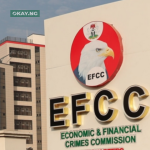The International Monetary Fund (IMF) has underscored the critical need for enhanced transparency within Nigeria’s oil sector, cautioning that the fiscal advantages gained from the recent elimination of fuel subsidies could be undermined by inefficiencies and a lack of openness. While acknowledging the Nigerian government’s decisive action to abolish the long-standing and costly fuel subsidy, the global financial institution stressed that without robust accountability mechanisms, the anticipated increase in government revenue and improvements in citizens’ well-being may not materialize.
Speaking in Washington during a briefing on the Sub-Saharan Africa (SSA) regional economic outlook on Friday, Abebe Aemro Selassie, Director of the IMF’s African Department, stated, “We have been commending bold reforms by the government, but we need to see a little more transparency in the oil sector to ensure that fuel subsidy removal can result in more flow of resources into government coffers.”
These remarks from the IMF arrive amidst growing public scrutiny regarding the utilization of savings generated from the subsidy reform. Lingering concerns persist concerning potential leakages within the Nigerian National Petroleum Company Limited (NNPC) and associated agencies, casting a shadow over the intended benefits of this significant policy shift.
The IMF report also highlighted the vulnerability of Nigeria’s fiscal position to external factors. “For Nigeria, where oil revenue remains a critical fiscal anchor, the recent drop in global prices is particularly concerning,” the report pointed out. This decline in oil prices, coupled with increasing global interest rates that elevate borrowing costs, is further straining the nation’s already limited fiscal capacity.
This situation unfolds against a backdrop of renewed economic pressures across Sub-Saharan Africa. According to the IMF, the region’s fragile progress, achieved after navigating four years of crises including the pandemic and global inflation, is now threatened by a fresh wave of global shocks. Surging borrowing costs, tighter external financing conditions, weakening global demand, and falling prices for crucial commodity exports are presenting new obstacles to the region’s growth trajectory.
Read Also: 2025 Economic Outlook: Nigeria Economy Poised for 4.17% Growth in 2025, CBN Predicts
“This is a serious test for policymakers in sub-Saharan Africa,” the IMF asserted, emphasizing the further constriction of already limited fiscal and monetary policy space. “The road to economic stability and sustainable development just got steeper.”
The shifting global economic landscape poses particular challenges for governments in the region striving to balance macroeconomic stabilization with ambitious development objectives, often while facing significant social pressures. While tentative signs of recovery had emerged for many, the latest wave of shocks is compelling a reassessment of strategies.
The Fund emphasized that resilience—defined as a nation’s capacity to recover swiftly from future shocks—must now form the bedrock of policy frameworks. The report stressed that building fiscal buffers, maintaining policy consistency, and reinforcing institutional credibility are more vital than ever in this evolving environment.
While acknowledging the “notable” progress and perseverance demonstrated by the region in recent years, the IMF cautioned that the path forward necessitates careful and prudent management. “Caution, consistency, and credibility are now more important than ever,” the institution underscored.













